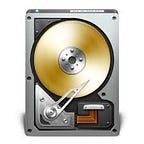Blockchain will shake up professional sports. Part 2
In the previous article, we described the parameters of a blockchain-based technology ecosystem for football infrastructure (selection, promotion of young players without intermediaries and extra costs).
Next, we will consider the main directions of this innovation system.
1
The first area is football scouting with biometrics and smart contracts.
It is necessary to create a single record (ID) recognized by all ecosystem participants with all sports history and the data necessary for scouts tied to the athlete’s biometrics, an application for scouts and clubs, as well as smart contracts to simplify transfers between academies and clubs without the participation of intermediaries.
There are two monetization models: access to the base of footballers by subscription or exclusive conditions for “turnkey” scouting of one of the countries is possible. Both options significantly reduce the costs of football clubs, and are especially convenient due to the pandemic and travel restrictions.
Changing the sports market off the ground and reducing the number of intermediaries in the football chain is not easy. Therefore, in the future, it is better to develop cooperation with agents. This will integrate into the traditional FIFA workflow.
Football clubs and scouts are interested in live demos of football players, not just data and videos in the app.
2
The second direction is a marketplace for football players with a full database of data necessary for scouts, verified using biometrics and blockchain.
A presence on such a sports platform expands the potential market for footballers and clubs. The creation of a single player passport with all the necessary data, biometrics and a guarantee of data authenticity using the blockchain speeds up the preparation of documents, especially for cross-border transfers, and reduces the risks of clubs.
The conclusion of smart contracts speeds up the conclusion of transactions and guarantees the automatic execution of the terms of the contracts. The model of work in this case is focused on players, academies, clubs that are willing to pay for access to the global sports market and additional services.
3
The third area is the development and launch of tokenization tools that allow funding the development of athletes and clubs at the expense of fans and crypto investors.
You will be able to support a patriotic talent and take pride in owning a collectible for a future sports legend, or to have a chance to sell tokens for much more when a young athlete reaches Olympic heights. In any case, both athletes and fans win.
For implementation, you can launch a sports NFT marketplace that will allow athletes to sell their photo videos and even real collectibles in the form of an NFT — a digital token that secures ownership of assets in the blockchain. Athletes can create a personal token for free, and their fans will be able to buy them and then sell them on the above marketplace or any other platform with support for the Ethereum protocol.
Promotion
The sale of NFT is an additional source of income for accomplished athletes, and the money received from the sale of personal tokens will help young athletes of the national and Olympic level to develop and achieve significant success.
The financial model of the NFT marketplace is revenue sharing. No investment is required from digital asset sellers. Everything is based on the technical platform and sponsorship costs for the creation of non-fungible tokens and promotion in the crypto community (covered by a commission from the sale of crypto-cards).
Athletes announce their NFT in social networks, the project and football players are jointly promoted in specialized media.
When promoting this concept, it is necessary to focus not only on B2B promotion, communicating with sports clubs, federations and their agents. Conversion to real deals and projects is expected to be low due to the conservatism of the sports market and the general situation in sports in connection with the coronavirus pandemic.
Major leagues, top-tier clubs and sports stars often push forward payment demands for marketing rights. A small startup in a new market has to convince athletes of the promise of blockchain and tokenization.
The launch of the NFT marketplace, which is aimed at the B2C market, should pay attention to strengthening the community on the main social media, regularly posting project news, increasing cooperation with sports and crypto bloggers, and conducting airdrops.
There is a lot of work ahead on new ideas for using blockchain technology in sports and the creation of new tools for financing sports using DeFi — decentralized finance.
Keep for updates.
